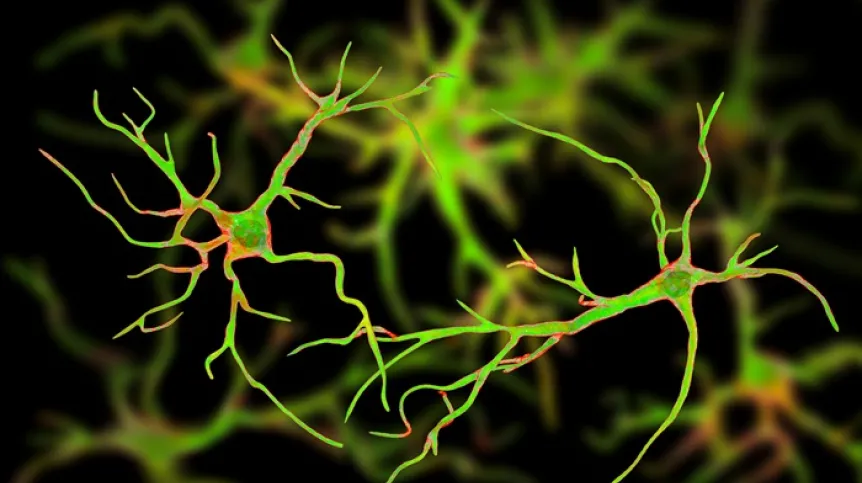
Dr. Andrzej Mizera from the Polish AI research and development centre, IDEAS NCBR, will conduct research on cell reprogramming using AI. An international team of scientists from Poland and Luxembourg will develop advanced computational methods that in the future may contribute to the treatment of Parkinson's disease.
As part of the project, the researcher and his team will develop advanced computational methods that will help understand how to effectively transform cells of one type into another.
Work on the project is scheduled to begin in November 2024 and continue for four years.
'Cellular reprogramming is a process of modifying gene activity in the cell nucleus, allowing the cell to +revert+ to an earlier stage of development, the pluripotency stage. Then, the cells can be +reprogrammed+ to become, for example, nerve cells or skeletal muscle cells. The reprogramming process can be used to model genetic diseases, epigenetic diseases and environmental diseases in vitro', says Dr. Mizera. ’We hope that in the future, after further painstaking research, cell reprogramming, combined with gene editing and tissue engineering techniques, will enable us to treat cancer and develop regenerative medicine'.
With artificial intelligence, it will be possible to create scalable computational methods that will make it possible to determine the right set of reprogramming factors and the order of manipulation when making changes to cells.
In a press release the researchers explain that traditional cell reprogramming methods remain inefficient and inaccurate. Subtle changes at the level of individual interactions between genes (i.e. connections or so-called edges in the gene regulation network) pose a particular challenge for researchers. Effective treatment of complex diseases requires more advanced technology.
A significant problem is the high complexity of cellular systems and the huge number of possible combinations of reprogramming factors to consider.
The EdgeCR project has the potential to significantly accelerate progress in this area. It involves the creation of computational models of gene regulation networks that will be able to precisely map both the structural and dynamic features of these networks. Thanks to the use of artificial intelligence, including deep reinforcement learning, it will be possible to more precisely control the reprogramming process, and open up new perspectives in the treatment of neurodegenerative diseases.
'The computational methods that we will develop will be tested in the context of Parkinson's disease. In particular, we will check whether our methods will allow us to effectively convert astrocytes into dopaminergic neurons. The loss of these neurons causes Parkinson's disease. Our research will be an important step towards reconstructing neurons and inhibiting the course of this disease. However, this will be one of many steps required to achieve this extremely difficult goal', says Dr. Mizera. 'Parkinson's disease is currently incurable and our project will not provide a cure for it, but it will allow us to create methods that may contribute to this result in the future'.
AI supports the development of biology and computational sciences
'Cooperation with scientists from the University of Luxembourg will enable us to develop computational methods that will take into account not only manipulations consisting in turning individual genes in the cell on and off, but also interfering with individual interactions between pairs of genes. Such methods are currently not available, and their development is crucial for a better understanding of the functioning of gene regulation networks and controlling their behaviour' says Dr. Mizera. 'The project is interdisciplinary, because the results obtained in the area of computational sciences and artificial intelligence will stimulate development in the field of biology, and vice versa'.
The Polish team's work in the winning project is financed by the National Science Centre, while the work of Luxembourg scientists is financed by the Luxembourg National Research Fund (FNR).
PAP - Science in Poland
lt/ zan/ kap/
tr. RL













